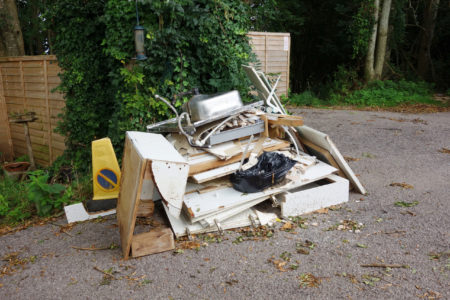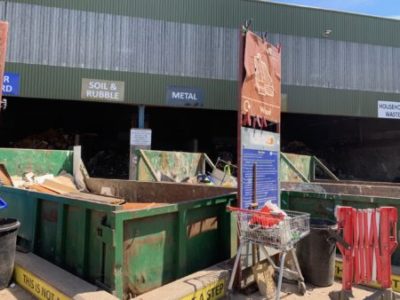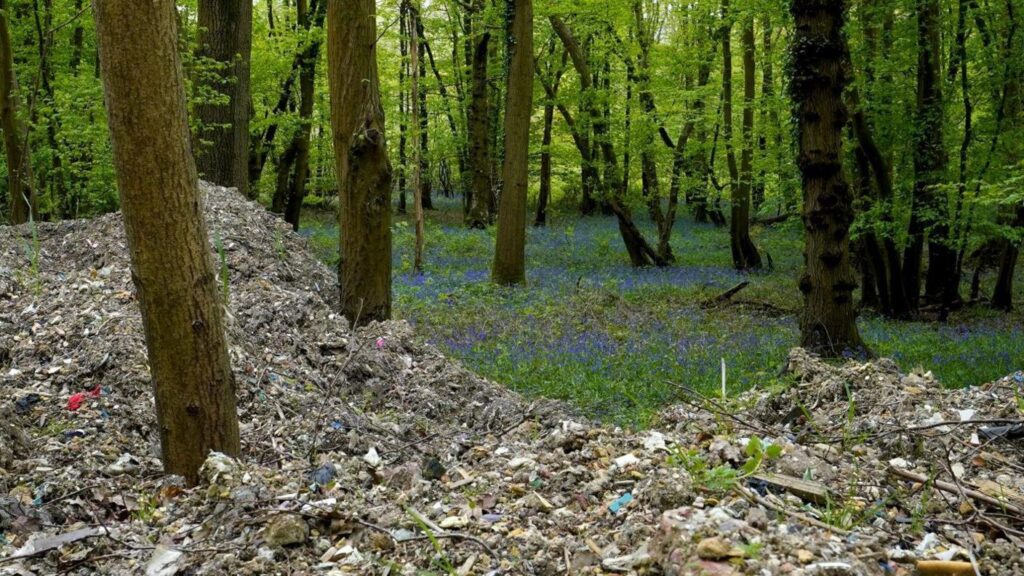Under the proposals, household DIYers would not be charged to get rid of waste including plasterboards, bricks, and bath units.
The government says it banned “backdoor charges” on residents disposing of household waste, including that arising from DIY, at HWRCs in 2015 (see letsrecycle.com story).
However, around a third of local authorities still charge for certain types of DIY waste, the government says, using rules designed for construction waste.
It claims the proposals outlined in a technical consultation published today will change this rule and could save households up to £10 for an individual item, such as a sheet of plasterboard.
Alongside this, the government will launch a call for evidence on the use of booking systems at HWRCs “amid concerns these could be making it harder for people to dispose of their waste and increasing the risk of fly-tipping.”
Many local authorities brought in booking systems at their HWRCs when restrictions were imposed during the pandemic (see letsrecycle.com story).
Finally, a number of councils in England will also be awarded grants totalling £450,000 to tackle fly-tipping through trial projects, including CCTV to target hotspots.
Fly-tipping
Local authorities dealt with 1.13 million fly-tipping incidents in 2020/21, the government says, up by 16% from 2019/20 (see letsrecycle.com story).

There were more than 60,000 fly-tipping incidents with construction, demolition, and excavation material in 2020/21, an increase of 18% from 2019/20, the government says.
Recycling minister Jo Churchill said: “When it comes to fly-tipping, enough is enough. These appalling incidents cost us £392 million a year and it is time to put a stop to them.
“I want to make sure that recycling and the correct disposal of rubbish is free, accessible, and easy for householders. No one should be tempted to fly tip or turn to waste criminals and rogue operators.”
Single items, such as furniture and mattresses, accounted for 16% of total fly-tipping incidents in 2020/21, the government says, rising by 7% from the year before.
The government is considering measures such as ecodesign, ecolabelling, and extended producer responsibility to tackle the issue.
Grants
The government’s £450,000 fly-tipping intervention fund allowed local authorities to bid for grants of between £25,000 and £50,000 to implement capital projects to tackle fly-tipping, with 11 grants awarded.
Durham, Newham, Eastleigh Borough, Buckinghamshire, Stevenage, Winchester, Dover, Thanet, Telford and Wrekin, and Basingstoke and Deane were among the councils to receive funding.
Buckinghamshire council plans to use a combination of AI-enabled rapid deployable cameras and automatic number plate recognition cameras to provide an alert to any visible left items at fly-tipping hotspots in real-time and link them to the vehicle that deposited them, allowing officers to investigate rapidly.
Funding for Durham council for CCTV will lead to individuals being directed to the council’s self-funded digital educational tool for those issued with an on-the-spot fine for fly-tipping.
Newham council will receive funding to prevent bags being on the street in front of business premises. They will scale up their trial of containers to house residential and commercial waste, which the government says resulted in a 24% reduction in fly-tipping.
Backing
The government’s proposals received the backing of several organisations from across the waste sector.

Jacob Hayler is executive director of the Environmental Services Association, the trade association representing the private waste sector. He said: “There is no single ‘silver bullet’ to tackle the scourge of fly-tipping so we are pleased to see the government announcing a range of new measures today to help deter this deeply anti-social criminal behaviour.”
And, Marcus Gover, CEO of resources charity WRAP, said: “The latest IPCC report clearly states that ‘it’s now or never’ if we are to act on global warming (see letsrecycle.com story).
“This stark reminder that how we use the world’s natural resources is threatening our very existence signposts material efficiency and recycling among priorities.
“Minimising waste is central to this and the introductions of grants to reduce fly-tipping across England and Wales are necessary to help prevent the continual environmental cost of this illegal activity.”
Related link
Household waste recycling centres: DIY waste disposal charges and booking systems








Subscribe for free